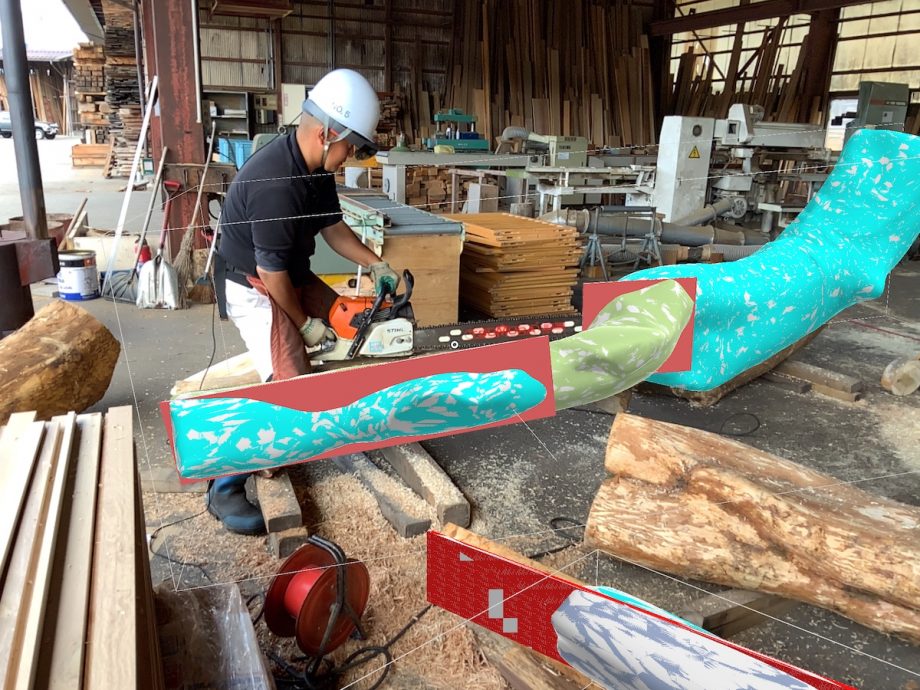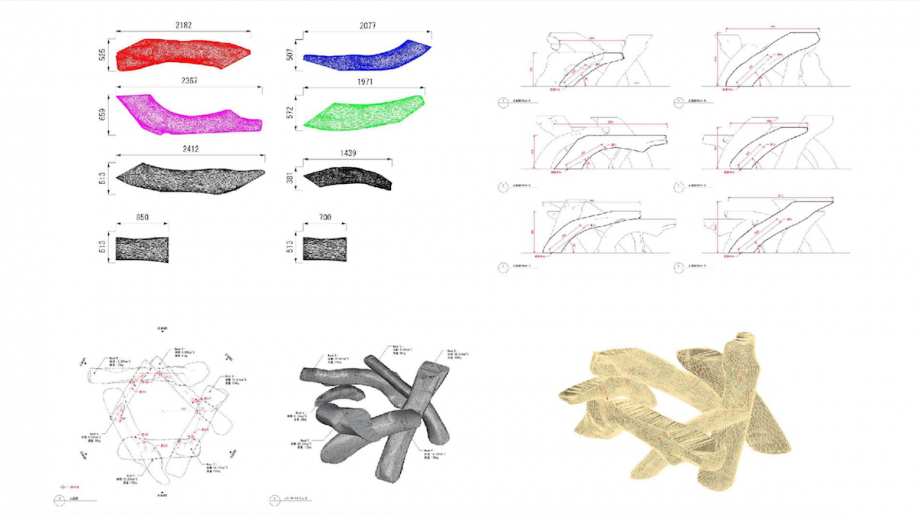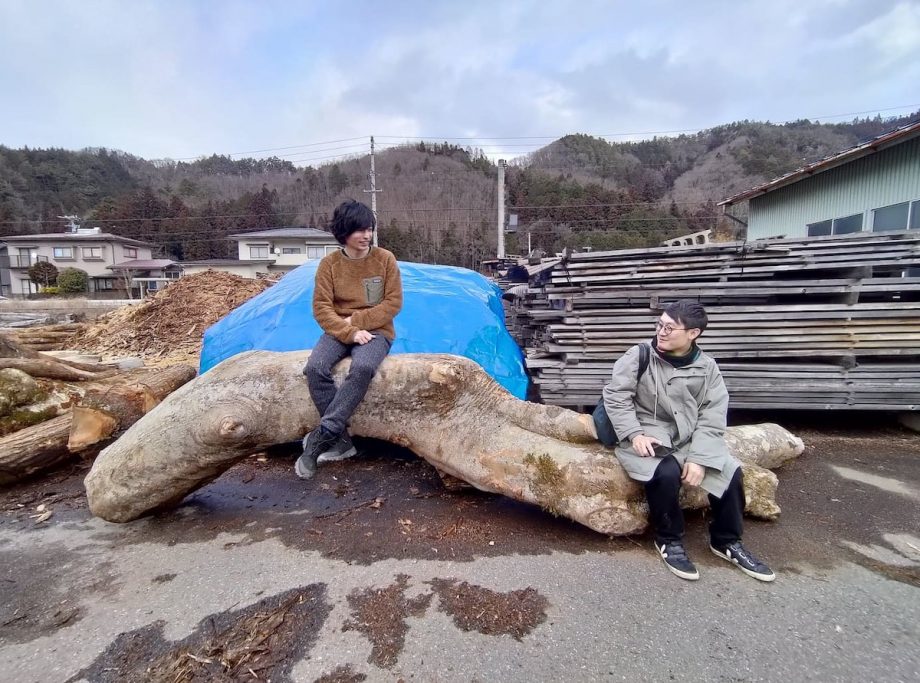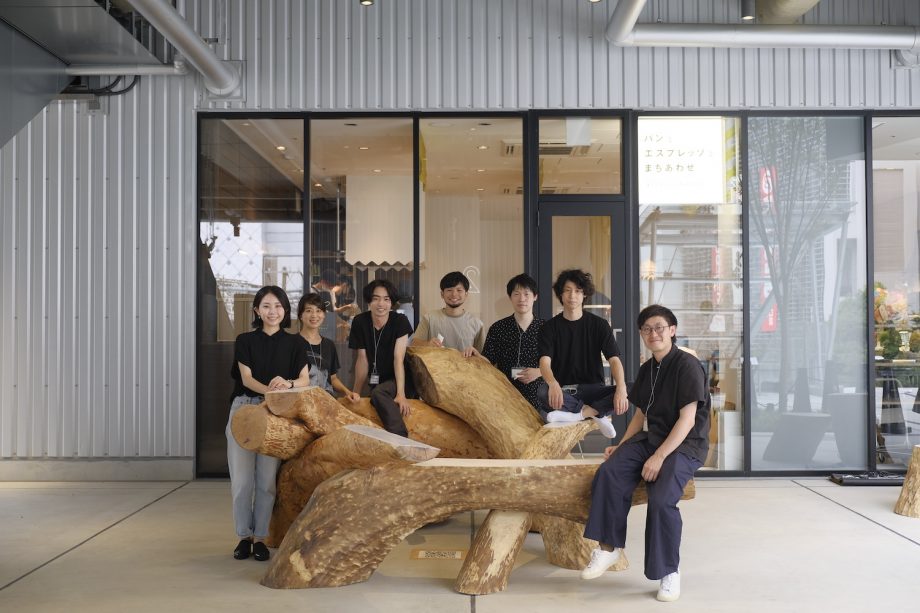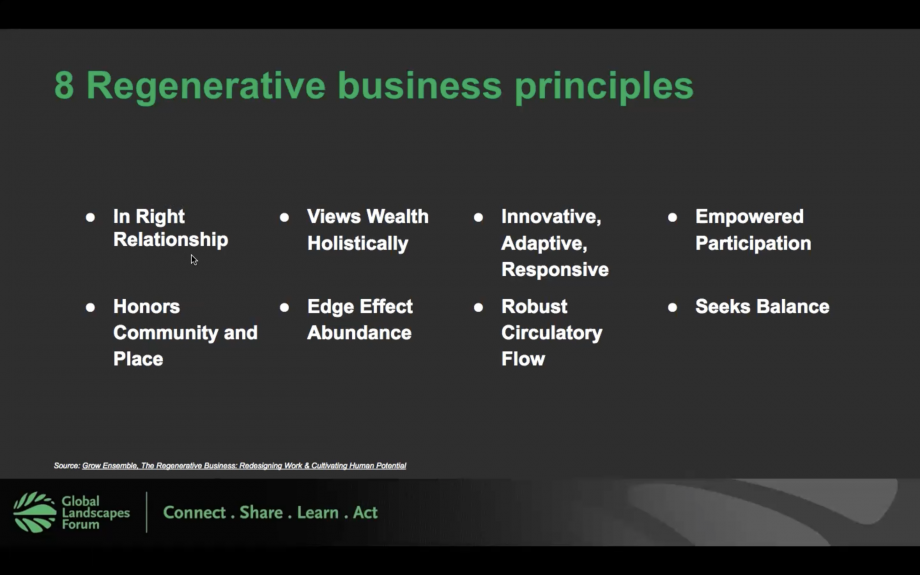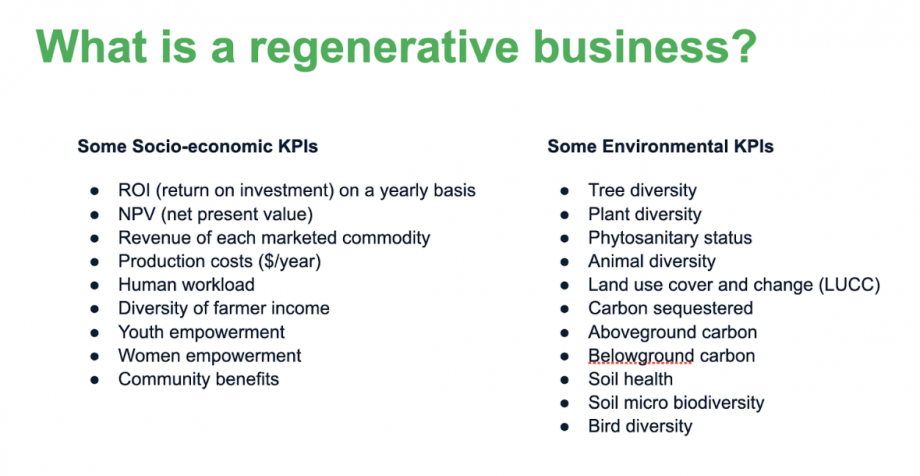Event report
January 18, 2023
FabCafe Global Editorial Team
About crQlr Meetups
The crQlr Meetups are a series of online and offline events hosted by FabCafes around the world which aim to connect the creators of the future who are working toward a more circular-oriented society. To receive the latest information and updates about the crQlr Meetups and other FabCafe news, please subscribe to the FabCafe Newsletter.
crQlr Meetup Hida: Regenerative business models for ensuring equality and resilience for the people and the planet

crQlr Meetup Hida / Introduction
The theme of this crQlr Meetup Hida was around the unexplored economic and ecological advantages of a regenerative business model that focuses on the utilization of natural resources. There were three speakers invited who have expert knowledge on different topics.
Yeliz Mert is Knowledge Sharing Coordinator at Global Landscapes Forum, which is a knowledge-led platform that connects people with a shared vision to create productive, profitable, equitable & resilient landscapes. Yeliz is an expert on how land based regenerative business models enhance equality and resilience for people and the planet and is joining the crQlr Awards 2022 as a judge.
Kotaro Iwaoka is a founding member of FabCafe and the President and CEO of Hidakuma. At Hidakuma, Kotaro aims to promote the craftsmanship and woods of Hida through the utilization of digital fabrication, IT, and other technologies.
Ronaldiaz Hartantyo is Mycotech Lab (MYCL) Chief Innovation Officer and co-founder. MYCL is a bio-based material startup from Indonesia. MYCL focuses on growing material using mushroom mycelium as a natural adhesive and is in the process of expanding their company to Nagano, Japan.
The Moderator for the crQlr Meetup Hida was FabCafe CCO and Loftwork Sustainability Executive, Kelsie Stewart.
What is a “Regenerative Business Model”?
In order to start from a shared understanding of our theme for the event, Kelsie introduced the concept of a “Regenerative Business” as: a for-profit organization that returns more to the environment, social and the economy than it extracts or takes out. In short, there should be a positive multiplier effect as a result of the business’s intention and strategy.”

From this introduction, Kelsie welcomed the 3 speakers, starting with Kotaro Iwaoka, FabCafe founding member and Hidakuma CEO.
Kotaro Iwaoka reveals the potential of sustainable local hardwood harvesting using technology
“Our mission is to increase the value of hardwoods that are used for inexpensive chips, return them to the forest economically, create sustainable and abundant forests, and create a stable forestry industry for the future.” – Kotaro Iwaoka
Hidakuma, which means “Bears Dance in the Hida Forest”, was establish in 2015 as a public-private partnership between Hida City, Tobimushi and Loftwork. Hidakuma’s first project was FabCafe Hida, which includes a cafe, digital fabrication lab, a woodworking studio and a guest house which has attracted international architects.
An abundance of forests and the woodworking skills of Hida artisans have contributed to the development of Japan’s crafts for more than 1,300 years. Hida is covered by forest for 93.5% of its land, of which 68% are natural hardwood forests. However, some characteristics of domestic hardwood have caused prices to go up and the demand for softwoods or imported woods are increasing. One characteristic that has caused this is that domestic hardwood has fewer large-diameter timbers than overseas-imported hardwoods which is essential for most furniture designs. Hidakuma tackles these kinds of challenges with the goal of further developing sustainable furniture production in Hida through using innovative technologies.

One project that Kotaro highlights to demonstrate how to tackle this challenge is the project Torinosu. This project uses 3D technology to analyze bent trees, which is the natural shape of hardwood trees, and lets designers use the data to design furniture and produce it precisely to come to an end product where the natural shape and design is in harmony.
Yeliz Mert supports scalable change through her work at the Global Landscapes Forum

Yeliz Mert identifies as a social designer and catalyst. With more than ten years of experience in regenerative agriculture, circular economy, climate action and diversity and inclusion, Yeliz is also one of the 9 judges for the crQlr Awards 2022.
Her aim at the Global Landscapes is to, “create pathways to turn knowledge sharing into action on the ground.” Yeliz kicks off her presentation by referencing the author of “The Regenerative Business”, Carol Sanford, who describes regenerative business as a business which, “acknowledges its place in the entire system where it operates- its community, its industry, its resource Yelix also presented alternative perspectives around circular economy:
“There are some limitations to the circular model. This (circular) model is not taking us out of the mindset of “business as usual”. Even though the circular model minimizes use of resources, it still focuses on using resources as a default. This means the ecosystem is not put at the center of the business model.”
How do we measure and analyze the results of a regenerative business model? Yeliz explained the business principles and key performance indicators (KPI) of a regenerative business model, which can be seen below:
Yeliz Mert shifted her presentation to the important work being done at the Global Landscapes Forum (GLF), whose activities promote the “Landscape Approach” and are directly and indirectly encouraging regenerative businesses to flourish around the world. Yeliz describes the core values of GLF: connecting communities across the world, facilitating knowledge sharing across these people and communities, and accelerating action.

GLF hosts what Yeliz refers to as “radical” conferences, trying to bringing together diverse speakers, from indigenous activists to Prime Ministers, which puts GLF in, “a unique position o catalyze transformative change at scale”. Engaging the youth has been a key activity of GLF as they are currently supporting a global movement with over 60,000 young people. For example, in the Youth in Landscape initiative, the selection of Restoration Stewards are awarded 5,000 Euros for project funding, training, and mentorships by restoration experts.
Ronaldiaz Hartantyo on the future of sustainable biomaterials
Ronaldiaz Hartantyo, who is co-founder and Innovation Officer of MYCL, talks about why MYCL started using mushrooms as a base material for sustainable leather, and how it compares to using regular leather. As can be seen in the diagram below, the mycelium leather developed by MYCL outshines cow leather by a variety of metrics.


“We started with using mushrooms to develop architectural structures and furniture, and through different prototypes we found that it has a leather-like characteristic. This is what we decided to focus on; as animal leather has a negative impact on the environment through the extensive use of land, water and high CO2 emissions from livestock.” – Ronaldiaz Hartantyo
“This is just the beginning of the mushroom revolution and I hope to start lots of collaborations in the future to grow MYCL. “ – Ronaldiaz Hartantyo
Crosstalk:
After hearing the interesting stories of the three speakers, we held a crosstalk, to discuss questions related to regenerative business models and to answer questions from the audience.
What do you think of the current trends of regenerative business and what do you think the future of these trends is going to be?
For me, to see the evolution of mainstream society, putting sustainability at the center and evolving it towards sustainable business models and now even expanding it with regenerative business models: that’s very positive for me. This is one of the things that gives me hope, even though climate change is worsening. – Yeliz Mert
I also see that there has been a shift in mentality from planting, growing and cutting trees towards a focus on resources that are already there. There is more focus now on the regenerative powers within existing forests, where people do not take control of the natural cycles of the forest. – Kotaro Iwaoka
Can you tell me the role of empowered participation and the role of indigenous people? What other people come into your work?
My first job after graduation was actually in vernacular architecture, which is architecture without an architect, which has withstood thousands of years of trial and error. At this job, I visited local villages and learned a lot there. I was listening to them, and actually found through social feasibility studies that they didn’t need electricity as I had previously assumed. They needed a market to sell their coffee. So I worked on that. – Ronaldiaz Hartantyo
We need to make a mindset shift: the short term thinking that we love so much and made people rich is not working. The next era we’re entering in is that we need to think slow. We cannot expect nature to recover if we’re just pushing and pulling it. The same goes for social capital and community building. – Yeliz Mert
Next steps and reflection on the crQlr Hida Meetup
Our products are currently still quite exclusive, because we produce on a project basis our mycelium. Our objective for the future is to make our materials widely available to the market, and affordable. With this, we want to create more impact. – Ronaldiaz Hartantyo
These kinds of events give me inspiration and empower me to keep doing this work. I’m very inspired to see examples from places that I have less direct contact with. I feel privileged to be able to listen to your stories. – Yeliz Mert
When I heard Ronaldiaz and Yeliz talk, it felt like they were talking about Hidakuma sometimes, because there are so many similarities in our projects. Your presentations are a fresh a source of inspiration to me and I can’t wait to share them with the Hida community so that we can take our initiatives to the next level! – Kotaro Iwaoka
Conclusion / About the crQlr Awards
Launched in 2021 by FabCafe Global and Loftwork as Japan’s first award in the field of circular design, the crQlr Awards aim at supporting the future-designers who are working toward the implementation of circular economy systems. Our goal is to nurture a community where players can connect across industries and countries and share knowledge and technologies in order to uncover potential and create new value.
How can we develop impactful circular systems in a wildly diverse world? FabCafe branches across different countries have proven that long lasting change often starts small and responds to the specific needs of local communities. Thus, in its second edition, the crQlr Awards have introduced the FabCafe Global Special Prize, which will highlight bottom-up activities aimed at solving community issues.
Interested in reading more about the previous crQlr summits? Click here for the report of crQlr summit vol. 3 of last year, on the topic of creating scalable impact, or click here for the report of crQlr summit vol. 4 of last year on the topic of system design and natural resources.
-
FabCafe Global Editorial Team
This articles is edited by FabCafe Global.
Please feel free to share your thoughts and opinions on this article with us.
→ Contact usThis articles is edited by FabCafe Global.
Please feel free to share your thoughts and opinions on this article with us.
→ Contact us

